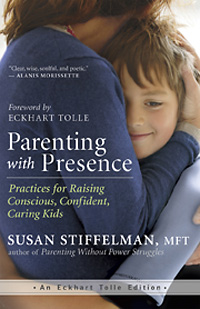What really knocks me out is a book that,
when you’re all done reading it,
you wish the author that wrote it was a terrific friend of yours
and you could call him up on the phone whenever you felt like it.That doesn’t happen much, though.
― J.D. Salinger, The Catcher in the Rye
There’s a quote from Thich Nhat Hanh about washing dishes that’s a bit long to quote here. Basically, he says that if you’re thinking about your tea while you’re washing dishes, we’re missing out on the miracle and the meditative act of dishwashing. We’re living in the future, and odds are we’ll do the same when we get our tea. We’re not spending our time, fully, in our moments, and that’s not living at all.
Don’t do any task in order to get it over with.
Resolve to do each job in a relaxed way, with all your attention.
Enjoy and be one with your work.―Thich Nhat Hanh,
The Miracle of Mindfulness: An Introduction to the Practice of Meditation
I think it’s safe to say we’ve all done this with parenting…
- I just want this meal to be over so I can clean the kitchen and sit down for a minute.
- I want this day to be over so I can sleep, this week to be over so I can enjoy the weekend.
- I can’t wait for my kids to grow out of the teething stage, the whining stage, the “it’s not fair” stage, the rebellious stage.
Guess what? They do grow out of those stages, and then the panic hits because soon they’ll be leaving the nest. My kids are 10, 14 and 17… and while I did try to be really present for them and with them for stretches at a time, I wish I’d done so a lot more. Not let depression, work, and anxiety about money and other things I had little control over get in the way.
Parenting is hard— and I have news, friends: it doesn’t get any easier when they’re older, it’s just hard in a different, and differently fulfilling, way. You begin to get a real hint of what those kids are going to be like as adults; infuriatingly, sometimes frighteningly, they’re a lot like you.
For better or for worse, there is nothing quite like hearing words you remember speaking when you were young being echoed by your teenager. And sometimes, that’s exactly what you need to finally work through the baggage you’ve been carrying since those days. Children make adults of us all.
I was recently sent a copy of Parenting with Presence: Practices for Raising Conscious, Confident, Caring Kids. That’s my copy pictured at top; usually, I read books with a notebook and pen, but there were so many things I wanted to be able to refer back to that I started dogearing. (Some pages are dogeared top & bottom because there were nuggets of wisdom on both sides of the page!) It would take me all day to list them all, so here are some I’ve randomly chosen, followed by an excerpt provided by the author.
I’m of the opinion that all self-help books of this kind are beneficial, in that they force you to slow down and really examine what’s gone awry in your life, and make an effort to fix them. Simply looking at what works and what doesn’t does wonders. Within this book is a treasure trove of advice, questions, and methods for improving not only your relationship with your children, but with your past and with the loved adults in your life. It’s more than a parenting primer; it’s a handbook for life. You should really check it out.
As frustrating as it is when our child doesn’t match up to who we would like him to be, we don’t lose our cool because he is annoying or uncooperative. We lose it because we think he shouldn’t be annoying or uncooperative. In other words, our difficulty in being fully present with whatever is going on with our children is fueled by the mismatch between our Snapshot Child—who exists only in our imagination—and the real flesh-and-blood one in front of us.
———-
It is in the challenging moments that we get to move through resistance and strengthen our dedication to parenting with presence. Remember, muscle building cannot take place without tearing down muscle fibers—this is called hypertrophy. These microtears are what it takes to build muscle bulk. We grow ourselves up each time we listen without reacting when our child shares something that fills us with dread, teaching her that she does not have to hide the truth from us.
———-
When most parents are asked what they want most for their children in preparation for their adulthood, they begin by saying, “I just want them to be happy.” And here is where things get interesting. While there are many qualities that we can and should nurture in our children, there is one without which all other attributes become significantly less important: we need to raise our children to know they are inherently worthy of love and happiness so that they will be able to absorb all the good that comes their way.
———-
Enjoying our own company, disengaged from external stimulation, is essential to our happiness. If we fail to help our children lean how to be alone, they will always be lonely. It is only when we can be truly comfortable in our own skin that we can attract and sustain healthy relationships.
———-
It is said that we think about sixty thousand thoughts each day. It is also said that about 80 percent of them are negative. And it is believed that about 95 percent of the thoughts we think today are more or less the same ones that we thought yesterday, the day before, and the day before that. This means if we don’t change our habitual way of thinking, we will be drenched in about forty five thousand negative thoughts each and every day.
You’re Living With Your Best Teacher
An Excerpt from Parenting with Presence by Susan Stiffelman
In India they’re called householder yogis — women and men with an unshakable commitment to their spiritual path who have decided to have a family rather than to live in a cave or an ashram. They choose to grow and evolve through their experiences at home and in the workplace, embracing the challenges of everyday life as the means to their transformation.
Many of us subscribe to the belief that spiritual growth happens as a result of daily meditation, mindfulness retreats, and inspiration from wise luminaries. But one of the greatest teachers you could ever hope to learn from is living right under your roof, even if (especially if) he or she pushes your buttons or challenges your limitations.
In parenting, things get very real, very fast. Figuring out how to cope when your child spills juice on the new sofa or managing your reactions when your kids tease each other nonstop on the long ride to Grandma’s is the equivalent of an advanced course in personal growth. Do you fall apart, or are you able to stay present, deepening your ability to be with “what is,” responding rather than reacting?
True spirituality doesn’t happen in a cave at the top of a mountain. It’s down here, wiping a runny nose, playing yet another round of Candyland, or rocking a colicky baby at two in the morning. The Buddha is crying in the next room. How you handle that is as evolved and as spiritual as it gets.
What is a teacher?
Many of us are charmed by the image of our sons and daughters as divinely appointed teachers who can help us transform our hearts and souls. But while the idea of seeing our child as one of our teachers has a lyrical, enlightened ring to it, there’s a difference between accepting the idea of something and embracing the reality of it.
Our children may indeed catalyze a love within us that we could not have imagined possible. But they can also elicit powerful elements of our shadow selves, calling forth aspects of our nature, such as impatience and intolerance, that leave us ashamed and overwhelmed.
Maintaining equilibrium is key to living in the moment, but nothing tests our ability to stay centered like parenting. Raising kids can be anything but peaceful, with sibling squabbles, homework meltdowns, and arguments over video games all-too-familiar features of the landscape of family life. It’s easy for soulful principles to collide with the realities of day-to-day life with children underfoot. Even the most seasoned meditator or yogini may find herself shouting, threatening, bribing, or punishing, despite having set intentions to remain loving and calm no matter what.
There is a saying, When the student is ready, the teacher appears. I have long found it to be true that when I am ready to expand my horizons intellectually, psychologically, or spiritually, an opportunity presents itself that seems divinely orchestrated to allow me to stretch, grow, and learn. That said, I don’t always want to stretch, grow, and learn! Instead, I may feel as if I’ve been involuntarily enrolled in a class I had no desire to take!
When it comes to parenting, it seems that although we may not have knowingly signed up for the “course” our children offer, we nonetheless find ourselves forced (“invited?” “given the opportunity?”) to profoundly grow, and grow up. In this respect, I believe our children can become our greatest teachers. While we may not deliberately choose to have a baby so that we can heal wounds from our childhood or become a better version of ourselves, in fact, those opportunities — and thousands more — are birthed right along with our children.
Susan Stiffelman, mft is the bestselling author of Parenting with Presence and Parenting without Power Struggles. She is a licensed marriage and family therapist, a credentialed teacher, and the Huffington Post’s weekly “Parent Coach” advice columnist. She lives in Malibu, California where she is an aspiring banjo player, a determined tap-dancer, and an optimistic gardener. Visit her online at http://www.ParentingwithPresence.com.
Excerpted from the book Parenting with Presence: Practices for Raising Conscious, Confident, Caring Kids ©2015 by Susan Stiffelman. Printed with permission of New World Library. www.newworldlibrary.com




Leave a Reply